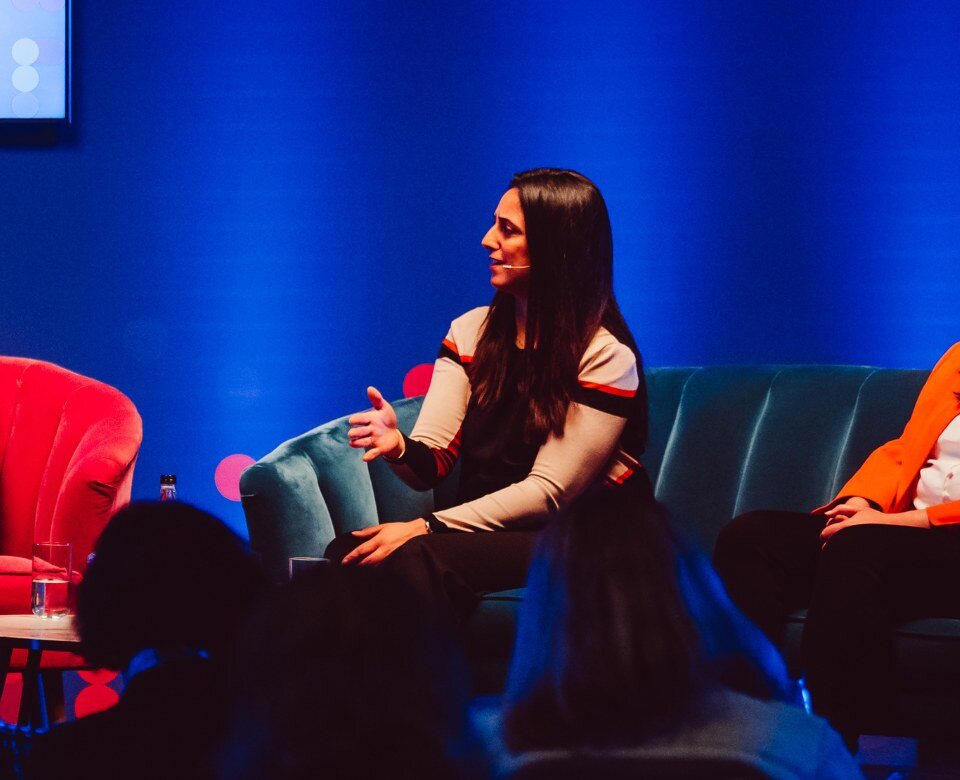
Sabah Carter: From Aspiring Journalist to Technology Leader

Kani Talabani
Leaders Profile: Sabah Carter, FSCS
Sabah Carter discusses her journey to technology leadership, the importance of continuous learning, and her dedication to fostering diversity and inclusion.
In this exclusive Leaders Profile interview recorded at The Studio, Sabah Carter, the uniquely titled Chief Data, Intelligence, and Technology Officer, at the Financial Services Compensation Scheme (FSCS)—a role so distinct it seems tailor-made just for her—delves into her career journey and the milestones that have shaped her path.
Equipped with more than two decades of experience across the industry, throughout her career Carter has taken on roles including Technology Director Global Business Systems at BBC Worldwide, Director Technology Business Operations at News UK and then a promotion to CIO Enterprise Systems and SVP.
Sabah Carter: Leaders Profile insights
Watch the full Leaders Profile interview below:
Continuous learning
Carter describes her career trajectory and development, in two words: “Continuous learning.” Commenting on the pace of change in the industry over the past couple of decades, Carter argues that her tendency to be a “lifelong learner” has helped her keep up with trends in the landscape.
“I've gone from being more directional to a little bit more coaching and I think that's natural to being a CTO.” Carter believes that throughout her career her leadership style has shifted and changed, going from a direct and overly involved stance to building efficient teams and letting them get on with their roles independently.
Journo-turned-techie
Originally planning to be a journalist, Carter hadn't anticipated going into technology.
Just before starting out in her technology career, Carter received a BA honours degree in Politics and Economics from Goldsmiths College. Later on she completed her Masters in Business Systems Analysis and Design at City, University of London.
“I was hoping to be a journalist, but I think I had a natural affinity towards an older brother with lots of technology in the house, and so I think not being frightened of technology and sort of, as it developed over time, being able to embrace it and adopt it.”
Her organic entry into the technology world has shaped her advocacy for encouraging young people to engage with technology freely. She believes that allowing children to explore this area without restrictions, much like Carter and her brother, is crucial for development and future adaptability. Technology has become “part of everything we do now,” says Carter.
Diversifying the industry
Carter expresses pride in her involvement in a project in India that focused on not just technology but also on fostering diversity and inclusion within leadership teams.
“There was a company that we set up in India and Bangalore and the reason I'm particularly proud to have been involved in leading the setup of that was it wasn't just about technology, it was about people—it was about growing people.”
Going into more detail about the company’s “wonderful” diversity setup, Carter explains that they were able to build and establish diverse leadership teams, focusing on building diverse leadership teams and ensuring representation across gender, faith and different backgrounds.
This project allowed Carter to integrate her technical expertise and skills with her passion for inclusive growth: “Coming from a technology background, being able to be involved in a project that had so many different dimensions was incredible and it also meant that across our organisation people were working with lots of different people—it's exciting.”
Turning points
“As a CTO when you build teams… sometimes not everyone fits and so sometimes you have to decide whether some people will make the cut and stay, whether they need to move into other roles or whether you need to hire fresh completely as well.”
Not every team is the strongest match—Carter covered the challenges of team dynamics, noting that sometimes team members may not fit well, leading to difficult conversations about their roles within the organisation. There comes a time where leaders have to make a tough decision to “cut the cord.”
On the other hand, Carter shared an anecdote where what was seemingly a negative situation turned into a positive outcome. Instead of exiting the organisation and never looking back, the person stayed and realised what their strengths were and aligned these to their new role.
“But it doesn't always end up that way so it is a very difficult conversation when it needs to happen sometimes.”
The value of trusted networks
“A few decades ago, certainly when I started, you didn't have forums like this and it made it very very difficult for people to grow.”
Referring to the community of technology leaders congregating at The Studio, Carter commented that the event is a “trusted network” with which leaders can be transparent, share experiences with and learn from.
“So coming somewhere like this regularly and seeing people you know, seeing new faces, talking about topics that you yourself have been thinking about and sort of working out some gnarly issues around.”
About Leaders Profiles:
The Leaders Profiles series offers exclusive insights and strategies from the industry’s top executives. As the ultimate hub for leadership excellence, we connect and inspire today’s top C-suite professionals—CIOs, CISOs, CFOs, CDOs, CMOs and CXOs—through in-depth interviews, quick video segments and strategic deep dives. Our goal is to equip you with actionable insights and innovative strategies, directly from the minds shaping the future of business. Explore more on leadership trends and strategies at our Leaders Profiles hub.
RELATED ARTICLES
Join the community
To join the HotTopics Community and gain access to our exclusive content, events and networking opportunities simply fill in the form below.